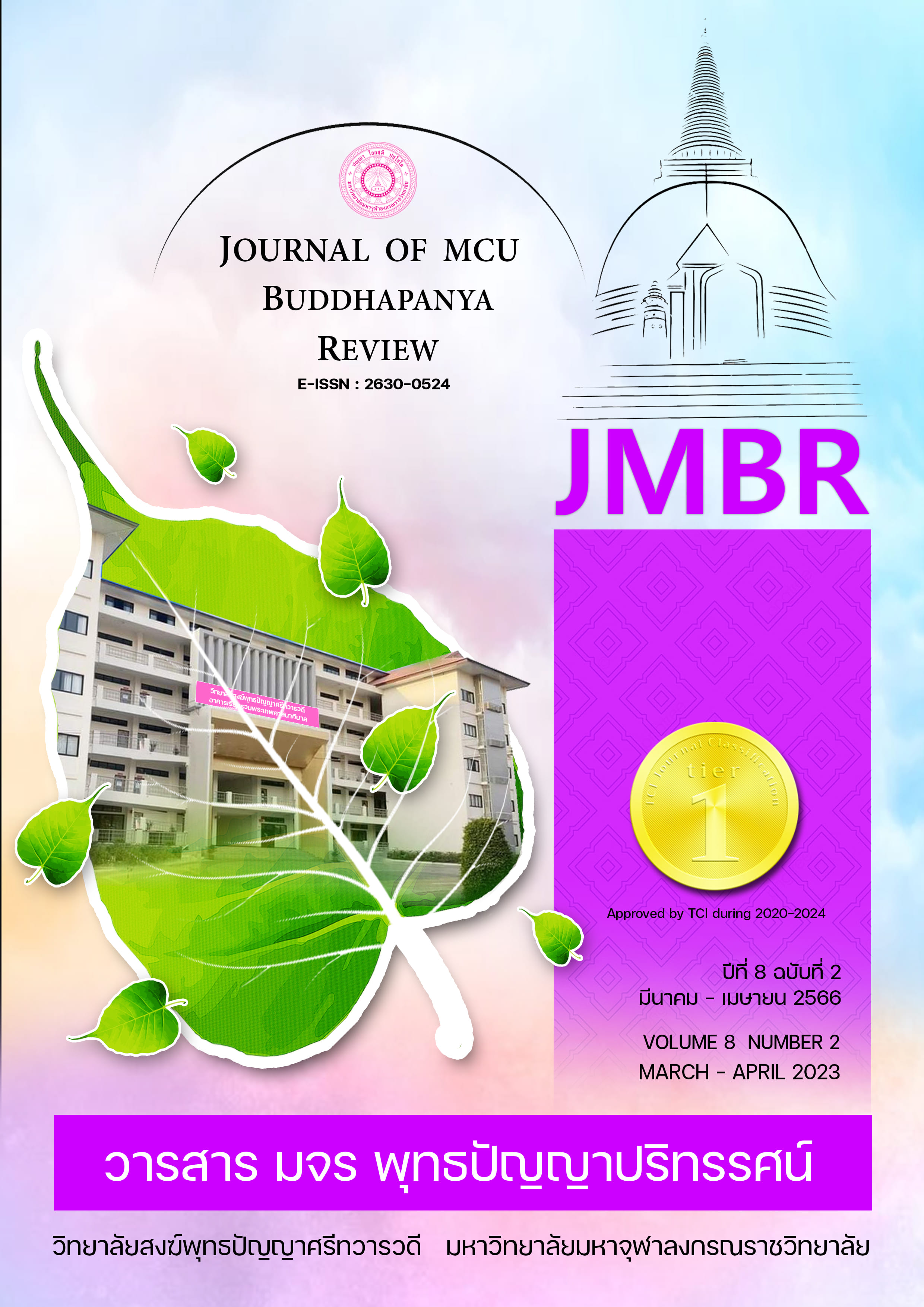การจัดการเรียนรู้ฐานสมรรถนะ เพื่อพัฒนาผลสัมฤทธิ์ทางการเรียน และทักษะการรู้เท่าทันสื่อ ของนักเรียนชั้นมัธยมศึกษาปีที่ 1
คำสำคัญ:
การจัดการเรียนรู้ฐานสมรรถนะ, , ทักษะการรู้เท่าทันสื่อบทคัดย่อ
การวิจัยในครั้งนี้มีวัตถุประสงค์เพื่อศึกษาแนวทางในการจัดกิจกรรมการเรียนรู้ด้วยสื่อการเรียนรู้แบบออนไลน์ที่ส่งเสริมความเข้าใจทางคณิตศาสตร์ และความเข้าใจทางคณิตศาสตร์ของนักเรียนจากการเรียนรู้ด้วยสื่อการเรียนรู้แบบออนไลน์เรื่องปริซึมและทรงกระบอก ประชากรที่ใช้ในการศึกษาครั้งนี้คือ นักเรียนชั้นมัธยมศึกษาปีที่ 2 ปีการศึกษา 2564 โรงเรียนภาชี “สุนทรวิทยานุกูล” จำนวน 260 คน กลุ่มตัวอย่าง คือ นักเรียนชั้นมัธยมศึกษาปีที่ 2/1 จำนวน 36 คน ซึ่งได้จากการสุ่มแบบกลุ่ม เครื่องมือที่ใช้ในการวิจัย คือ แผนการจัดการเรียนรู้วิชาคณิตศาสตร์ เรื่องปริซึมและทรงกระบอกโดยการจัดกิจกรรมการเรียนรู้ด้วยสื่อการเรียนรู้แบบออนไลน์ แบบทดสอบวัดความเข้าใจ อนุทิน และแบบฝึกหัด วิเคราะห์ข้อมูลจากคะแนนในแบบวัดความเข้าใจโดยใช้สถิติพรรณนา ได้แก่ ความถี่ ร้อยละ ค่าเฉลี่ย และส่วนเบี่ยงเบนมาตรฐาน และใช้สถิติอ้างอิง (one-sample t-test) เพื่อตรวจสอบสมมติฐาน
ผลการวิจัยพบว่า แนวทางในการจัดกิจกรรมการเรียนรู้แบบออนไลน์ที่ส่งเสริมความเข้าใจทางคณิตศาสตร์ ประกอบด้วย 1) สื่อที่ให้นักเรียนเรียนรู้ด้วยตนเองควรดึงดูดความสนใจและมีปฏิสัมพันธ์กับนักเรียนเป็นระยะ 2) สื่อที่ใช้ทดสอบความเข้าใจของนักเรียนควรมีการให้ผลย้อนกลับนักเรียน และ 3) งานหรือกิจกรรมในชั้นเรียนควรส่งเสริมให้นักเรียนได้มีโอกาสสืบเสาะและสร้างข้อความคาดการณ์ด้วยตนเอง และผลจากอนุทิน แบบฝึกหัด และแบบทดสอบวัดความเข้าใจทางคณิตศาสตร์ พบว่า นักเรียนส่วนใหญ่มีความเข้าใจทางคณิตศาสตร์อยู่ในระดับดีและปานกลาง และคะแนนเฉลี่ยความเข้าใจทางคณิตศาสตร์ของนักเรียนสูงกว่าเกณฑ์ในระดับดี อย่างมีนัยสำคัญทางสถิติที่ระดับ .05
เอกสารอ้างอิง
Canadian Council on Learning, (2008). Media Literacy for Children in the Interner Age. Retrieved July 16, 2010, from www.jmle.org/index.php/JMLE/ artical/view/48/32
European Commission. (2007). A European Approach to Media Literacy in the Digital Environment. Retrieved July 20,2010, from www.europa.eu/avpolicy/ media_ literacy/does/com/en.pdf.
Oxstrand, B, (2009). MEDIA LITERACY EDUCATION-A Discussion about Media Education in the Western Countries, Europe and Sweden. Paper presented at the Nordmedia09 Conference in Karlstad University. Sweden.
Ministry of Education. (2008). Basic Education Core Curriculum 2008. Bangkok: The Cooperative Federation of Thailand.
Kitipong Luenam. (2018). Educational Research Methodology. Nakhon Ratchasima: Korat Marketing and productions.
Thitana Khaemanee and others. (2019). 10 core competencies, making Thai children smart and knowledgeable. Well-being, highly competent and socially conscious. in the Secretariat of the Council of Education, reports, works, media, publications, public relations, and dissemination of the competency framework of learners. Basic education level (p. 3-4). Bangkok: Office of the Council of Education Secretariat.น
Lak Phaengruen. (2015). The development of a curriculum for enhancing English speaking ability to provide information based on competency-based concepts. For high school students (Doctor's thesis, Chulalongkorn University).
Boonchom Srisa-at. (2010). Preliminary research. (8th edition). Bangkok: Suweeriyasart.
Mahisarathibodi School (2020). Educational institute curriculum. Mahisarathibodi School, 2020 according to the Basic Education Core Curriculum, 2008. Nakhon Ratchasima: Mahisarathibodi School.
Office of the Secretariat of the Council of Education. (2019). Easy to understand performance. Edition for the public and easy to understand competency-based curriculum, edition for teachers, administrators and educational personnel. Bangkok: 21 Century.
Usa Biggins. (2012). Media and Information Literacy. A set of tools and creative activities for the community. Bangkok: Children and Youth Health Promotion Media Program (Thai Health Promotion Foundation)
ดาวน์โหลด
เผยแพร่แล้ว
รูปแบบการอ้างอิง
ฉบับ
ประเภทบทความ
สัญญาอนุญาต
ลิขสิทธิ์ (c) 2023 วารสาร มจร พุทธปัญญาปริทรรศน์

อนุญาตภายใต้เงื่อนไข Creative Commons Attribution-NonCommercial-NoDerivatives 4.0 International License.



